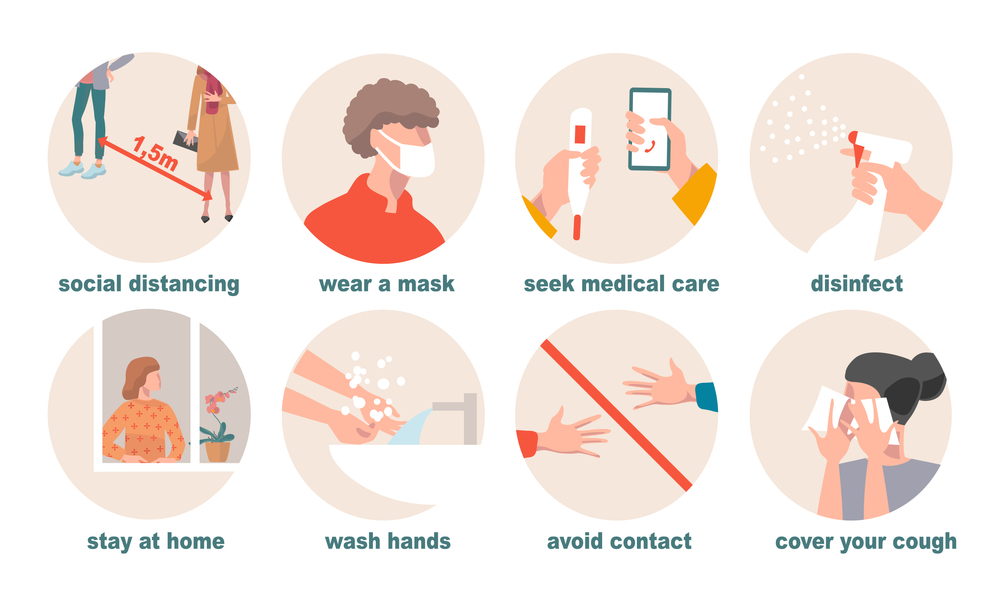Omicron Virus was first detected in Botswana and South Africa, when it was reported to WHO on November 24th. Scientists and public health experts are concerned about this new coronavirus variant. This new variant is said to be more transmissible and less detectable as the virus has an unusually high number of mutations.
Omicron Virus is a new strain of the virus that causes COVID-19, also known as B.1.1.529. The World Health Organization has labelled the Omicron virus a “variant of concern”. This variant has a large number of mutations and some of which are quite concerning. The variant is highly transmissible and has been detected at higher rates as compared to the other variants.
The organization has warned about the possibility of worldwide hazards as the new variant contains the factor of high risk. So far, the Omicron cases have been found in 20 nations, including India, the United Kingdom, Italy, Belgium, and the Netherlands.
What makes omicron different from other variants?
Scientists all over the world are working to comprehend the Omicron variant of Covid-19. This variant is thought to be more hazardous than other variants of COVID-19. Also, according to WHO, it is not sure if Omicron is a more severe disease as compared to other variants. Yet, vaccination is important in minimizing the effect of this new variant.
Omicron has a higher risk of reinfection than other variations of concern, but, information is very little or scarce. The variant carries higher chances of reinfection, i.e. people who previously had COVID have a higher risk of getting infected with Omicron.
Not enough information has been gathered about this new variant, however, reinfections are likely but vaccinated people have fewer chances of developing serious disease.
What are the symptoms to watch out for?
![]()
The symptoms associated with Omicron are very similar to previous COVID variants but also differ slightly.
Most Common Symptoms
Fever, cough, weariness, and loss of taste or smell are the most prevalent symptoms of the novel COVID Variant Omicron.
Less Common Symptoms
Sore throat, headache, aches, pains, diarrhoea, a rash on the skin, red or inflamed eyes, and discolouration of fingers or toes are some of the less common symptoms of the novel COVID Variant Omicron.
Serious Symptoms
The novel COVID Variant “Omicron” causes serious symptoms such as trouble breathing or shortness of breath, loss of speech, immobility, ambiguity, and chest pain.
Note – If anyone experiences these symptoms they should immediately consult a doctor and urgently take a COVID test.
What precautions should we take?

According to the Union Government, people should not be alarmed and should instead practice COVID-19-appropriate behaviour and be vaccinated as soon as possible. While experts predict that more information on Omicron will become available in the coming weeks, the Union Ministry of Health and Family Welfare has issued a FAQ to help citizens understand what the Omicron variant of COVID-19 is and what precautions they should take to prevent the stain from spreading.
It is assumed that the precautions and actions to be taken are the same as they were previously. It’s critical to keep your mask on, get completely vaccinated (if not already vaccinated), maintain social distance, and get good ventilation.
How quickly could it spread?
The quick rise of Omicron in South Africa is what researchers are most concerned about, as it shows the mutation could induce a surge in COVID-19 cases elsewhere. Considering the rise in COVID-19 cases and the gathered data, it could be said that Omicron can affect three to six times as many people as Delta and in the same time period. Researchers are actively watching the Omicron spread in other parts of South Africa and all over the world to get a better understanding of its transmissible ability.
Does Omicron cause more severe illness?
Latest reports depict Omicron as a modest or less severe disease. There are chances that this variant will be milder than the previous ones. However, no confirmation is received about this data and prediction. In comparison to the Delta version, which triggered the second wave of coronavirus in the country, the Omicron variant is predicted to cause three times more reinfections. But it can be said that this variant is less dangerous than other variants and is much more likely to be prevented through vaccination.
Will the Covid-19 Omicron variant cause the third wave in India?
As the fast-spreading Omicron makes its way into India, it’s impossible not to wonder if there will be a third wave of Covid-19. And, if that’s the case, is India ready? The second wave of the coronavirus pandemic has hit India hard. However, it is too early to conclude that the Omicron variety will result in the third wave of COVID-19 in the country.
The majority of Indians have antibodies against the fatal virus, and four-fifths of all people have already been partially vaccinated hence, it is unlikely that majority of the Indians will be infected. Furthermore, given India’s rapid vaccination rate and significant exposure to the delta form, the disease’s severity is expected to be minimal.
Conclusion
The central government has advised people not to be alarmed by the new strain and has also stressed the importance of public awareness. The Indian government is keeping a close eye on the situation and issuing appropriate directives as needed.
The precautionary measures and arrangements may also provide greater assistance. It depends highly on the behavioural patterns of the public towards the Omicron virus and its mutants. Stay at home, follow doctor’s advice, maintain distance and help the nation to overcome the impact of the Third wave of COVID-19.

